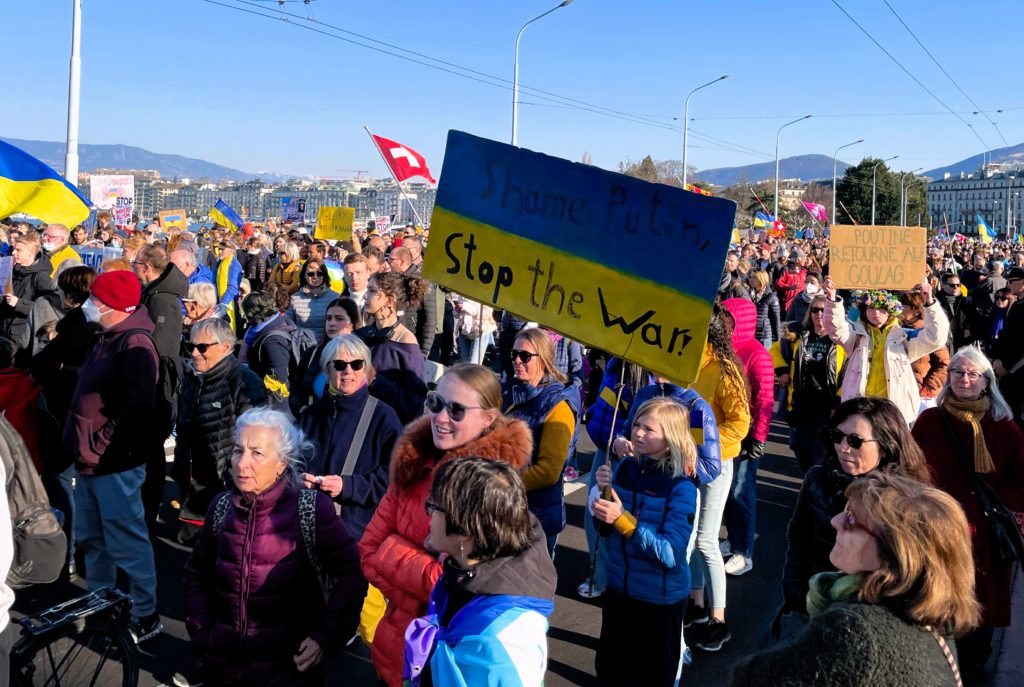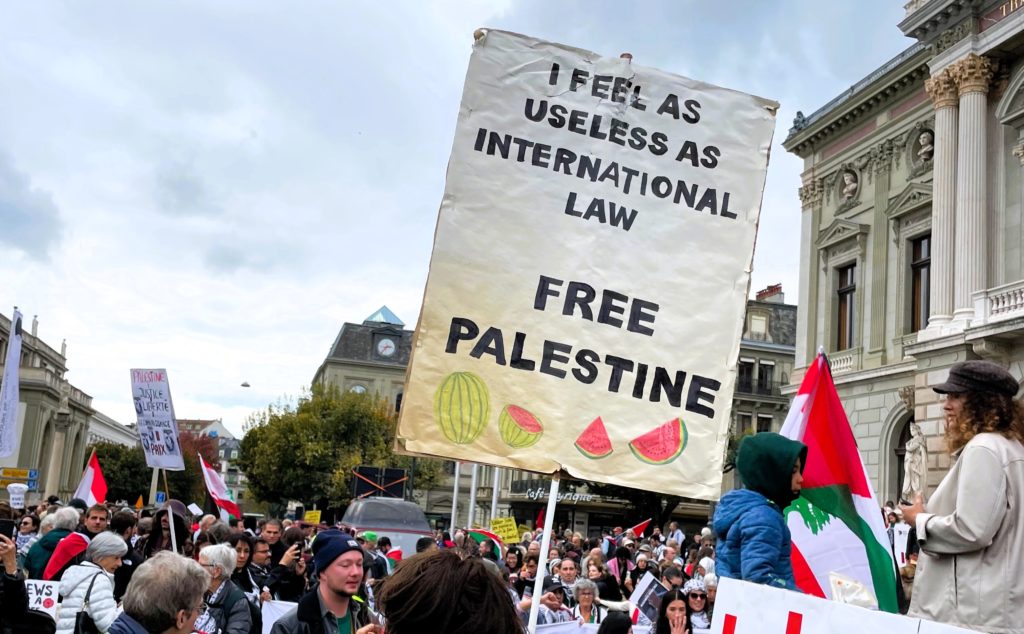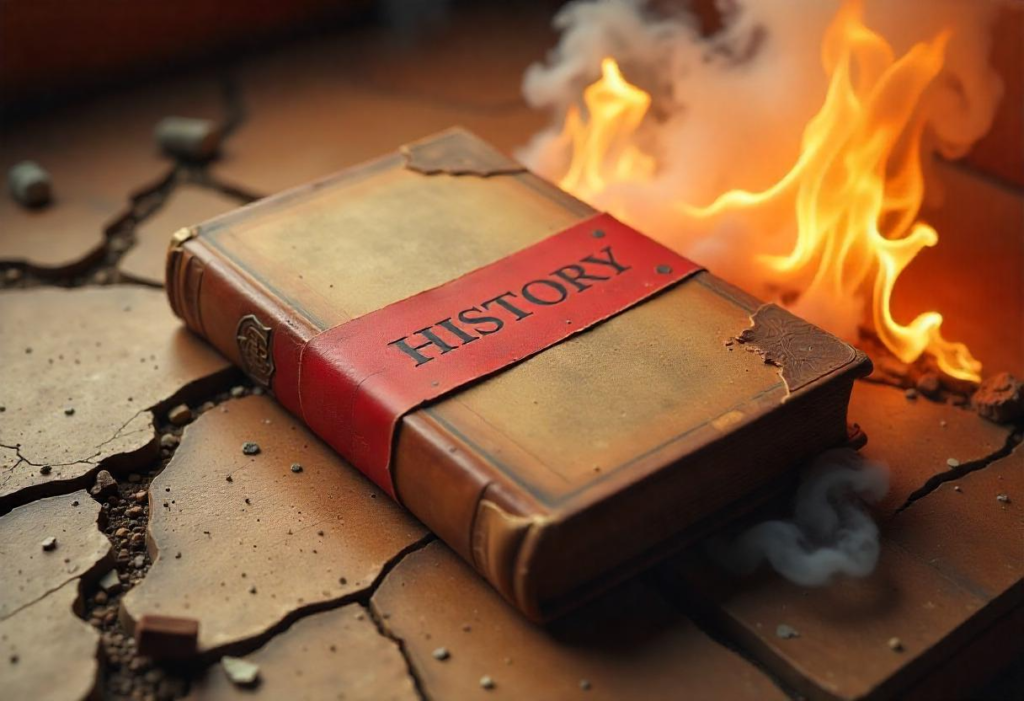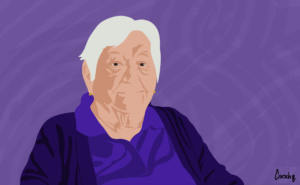
Men make their own history, but they do not make it as they please; they do not make it under self-selected circumstances, but under circumstances given and transmitted from the past. The tradition of all dead generations weighs like a nightmare on the brains of the living.
Karl Marx (1)
The aftermath of the showdown at OK Corral (aka the White House) between the supplicant and a frenzied bully accompanied by his attack dog on the now infamous last Friday of February is an opportune moment to reflect on the state of the world, and particularly of Europe—and the dangers that we citizens face.
Echoes of 19th-century imperialism? Of the Berlin Congress that divvied up colonial Africa? Of the path to war and Holocaust in the late 1930s? You take Ukraine, I’ll take Greenland and the Panama Canal. The third emperor can take Taiwan. Bingo! We have a new world order.
Gaza? Too complicated and it has no rare earths. Sudan and Myanmar are off the radar screen and can continue to bleed in silence.
So the rules-based order, such as it was, is shattered, and great-power, ‘me-first’ imperialism is back with a vengeance. We know how it ended last time around. It took two world wars for a semblance of an agreed global order to emerge. As Marx quipped, history repeats itself: the first time as tragedy, the second time as farce. Our current emperors may be laughable but they are armed to the gills and the only people who are chortling on the way to the bank are the arms manufacturers. Well, maybe Putin and his cronies too.
Autocratic and semi-autocratic regimes are on the ascendance. In Europe, the US and beyond, current and would-be dictatorial leaders are rampaging, taking the chainsaw to civil liberties and “itching to boil their children” as Auden prophesized in 1939 (2). Democracy, including respect for human rights, has become optional, if not a dirty word, in large swathes of the globe. Meanwhile, we the people(s) and our elected representatives are sleepwalking into a catastrophic and disorderly abyss. And there’s the rub —but more on this later.
A placard at a recent demonstration on Gaza—‘I feel as useless as international law’—sums up the general feeling of impotence for many. European leaders seem to be hesitating between passionate intensity and obsequious pusillanimity and can scarcely see beyond the crisis of the day, let alone the next election cycle. Their hands are white from wringing while imperial agendas push half-baked “solutions,” whether in Gaza or Ukraine, that they know are not even minimally viable because they ignore the root causes.
Ukraine is a good example of how NOT to end a war. Here are some pointers:
- The war is a product of circumstances that have a long history going back to WWII if not much earlier. Whether justified or not, there is a perspective, in Moscow and elsewhere, that Ukraine has been fraudulently lured out of a purported Russian orbit where it was historically situated (3). Pretending, as many Western leaders do, that the crisis started in 2014 or, worse, in 2022, serves nobody’s interests – least of all the Ukrainians who are doing the dying.
- Trying to solve the war as if it were a simple aggressor-victim problem is a recipe for more and not less, armed conflict. Grievances and aspirations, some going back decades if not centuries, must be addressed. Unless the reasons that trigger and perpetuate armed conflict are tackled front and center, peace will remain a mirage.
- Putin and his clique are obsessed with the West’s Drang nach Osten (4). And with some historical reason: all invasions of Russia – from the 13th century Teutonic crusade defeated by Alexander Nevsky – came from the West. Even if Putin’s armies were to be defeated, sabre rattling and forcing a Pax Occidentalis on Russia will not work. At best, it would be a negative peace, a frozen conflict that could erupt at any moment.
- A durable positive peace, beyond a temporary truce or ceasefire, is impossible without addressing Russian aggression and expansionism but also grievances, real or perceived, linked to post 1991 Western hubris and NATO enlargement. The latter is a critical issue which is rarely discussed in Western media and, shockingly, is not even on the radar screen of Western leaders who still present the war in good guy-bad guy terms.
- Finally, and perhaps most importantly, peace cannot be imposed from without. This means that the people concerned need to have a say. Any “solution” that comes in over their heads is doomed to fail. And, here, the savaged and much-maligned UN must play a role.
What to do? Concretely, if the above is taken into account, the solution is simple (5):
- End hostilities starting with a truce or ceasefire that enables the exchange of prisoners, humanitarian access, dialogue, negotiation and some initial recuperation of essential infrastructure.
- Establish a UN authority to administer contested areas and a credible UN force drawn from a wide range of countries with a robust mandate to ensure the ceasefire is respected; learn from the failures of the OSCE (Organization for Security and Cooperation in Europe): a force composed of NATO countries is an obvious non-starter.
- Pursue mediation and CBMs (confidence-building measures) so that all concerned parties address contentious issues and conditions antagonistic to a just and durable peace;
- Launch a five-year reconstruction plan in all war-affected areas on both sides of the ceasefire lines to be followed by referenda in each of the contested areas. Ideally, the Russian and Ukrainian populations at large should have a say on future arrangements through some form of representative consultation process.
Simultaneously, start preparations for an international conference on peace and security in Europe. The conference should generate the conditions for the abolition of all military alliances. The Warsaw Pact folded with the end of the Cold War; NATO should follow suit. The treaty resulting from the conference should include a credible and well-resourced disarmament process leading to a nuclear weapons-free Europe.

Historians of the 22nd century—assuming, of course, that historians and organized life still exist—will cut through the deep fog clouding the vision of contemporary leaders. These historians will see very clearly the opportunities that were missed when the Iron Curtain was torn down in the early 1990s.
They will analyze how the West ignored, or deliberately undermined, the historic opportunities for durable security and economic development of the entire European continent – from the Atlantic to the Urals and beyond.
They will note that the arrogance and hubris of the so-called “victors” of the Cold War were such that they completely ignored the circumstances – the culture, the sociological characteristics and the history of Eastern Europe.
They will document how western leaders attempted to drag the East into a Western sphere of influence and on the latter’s terms.
Historians will also record how so-called disinterested economic advice provided by Western pundits and multinationals resulted in the emergence of oligarchs and kleptocratic unaccountable regimes.
They will conclude that it was not a surprise that these measures would trigger a hostile reaction on the part of those who feared that the communist yoke would be replaced by ill-conceived Western economic, cultural and political forms of domination.
And what will historians say about the shameful vassal states? They come to the emperor’s castle, cap in hand, paying homage to puffed-up egotistical personalities. When angrily rebuffed with a blank and pitiless gaze, they slouch their penitent way to Canossa? Perhaps it is best to leave this unsaid.
Historians will also note a peculiar characteristic of early 21st-century societies: the absence of notable peace movements and more generally the weakness of civil society efforts to counter abusive processes and discourses.
They will contrast this with earlier epochs such as the Vietnam War and the massive Ban-the-Bomb demonstrations of the 1960s. They will ask why societies were so disengaged, so atomized, so focused on the individual rather than the collective. Was there anything in the air or in the water? Did something happen to the ‘need for justice’ gene? It couldn’t be that the majority were just unconcerned or didn’t care. Perhaps, mercifully, they will note that towards the end of the second decade of the century things started to change. At first, they were accused of being nostalgic Peaceniks…. but then the movement grew and grew…. And the rest is, well, history!

Back from the future. Even if the dream outlined above, which I acknowledge is not easily realized, were to be accepted by those with power and an informed citizenry, and even if it did lead to a revolutionary European-wide peace and security process, a thorny conundrum remains.
Do the aggressors go scot-free? Realists will say: that’s the price to pay for durable peace in Europe. Critical theorists will disagree (but of course that’s their job). Pragmatists will say let’s be practical. Two considerations are in order here. The first is that the “sanctions + indictment” model turned out to be ineffective given the absence of any enforcement teeth. Parts of Europe are still reeling from the consequences of robust enforcement of the Versailles Treaty, never mind the fact that the payment of reparations inflicted on Germany in 1919 was a significant factor in the rise of Hitler. The second is that without major reform of the UN Security Council – including the abolition of the veto – mechanisms like the ICC (International Criminal Court) will continue to be brilliant ideas whose time has not (yet) come. Paper tigers of sorts.
But dream we must. That the dramatic geopolitical upheavals we are witnessing will lead to reform and produce a newly invigorated multilateral system. If the UN is dead, long live a new UN! If there is no peace movement, spruce up your banners and take to the streets. Change will not happen without a broad-based and committed grass-roots movement. There are huge reservoirs of indignation to be tapped.
Denounce, mobilize, organize! Act on the belief that inhumanity and “might makes right” politics must be consigned to history. Act quietly or loudly, locally and globally. Giving up is not an option.
Footnotes:
1 Karl Marx, The 18th Brumaire of Louis Bonaparte.
2 W.H. Auden, Voltaire at Ferney.
3 See for example Jeffrey Sachs speech at the European Parliament on 22 February 2025. Link
4 The push to the East” – expression of German nationalistic (and later Nazi) aspirations to occupy Slavic lands.
5 Similar proposals were put forward as early as March 2023 by Alexander Casella.
About the author: Antonio Donini is a former UN humanitarian official and a co-founder of United Against Inhumanity.
The opinions expressed in this blog are those of the author and do not necessarily represent the views of United Against Inhumanity (UAI).











